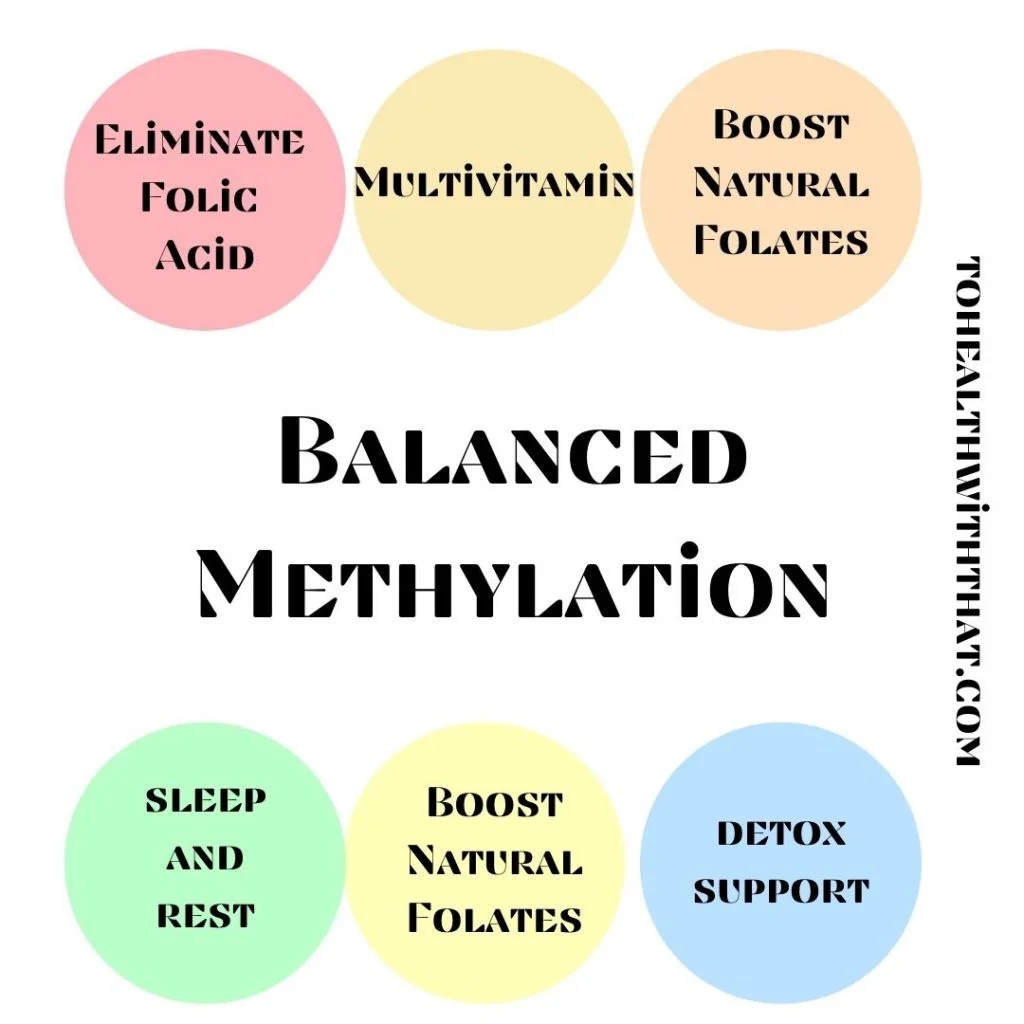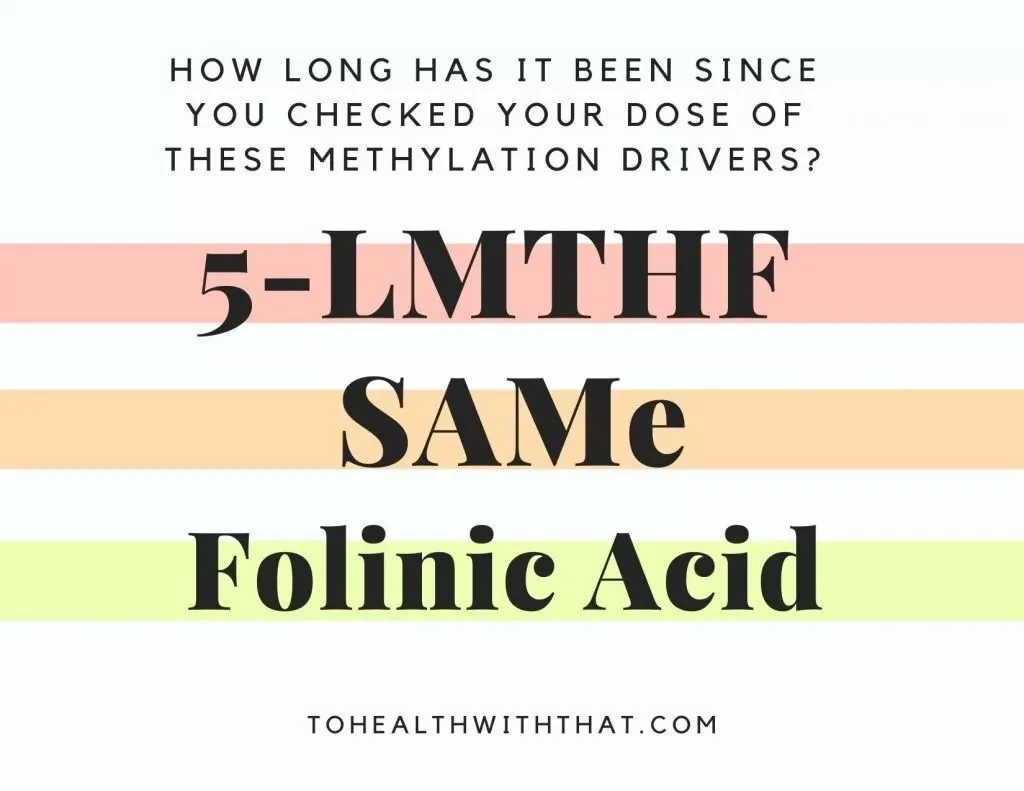Let’s check in with what is going on so far. If you’ve been following the process this season, you will have noticed that I haven’t really addressed what we’re doing in a while, so let’s touch base.
There are some reasonably long stretches in the MTHFR journey in which we aren’t really changing things, doses are just staying the same, and it might seem like not much is happening. The reality, in fact, is that lots of things are happening in your body but none of it needs additional input from you.
This phase of the journey is what I like to call “Burning Through The Backlog.” When you first start diet changes and methyl folate or SAMe or whatever workaround you’re using, you see the immediate activation of the methyl cycle and some immediate health changes. Usually, that feels like a better mood, less anxiety, etc… After that initial balancing phase, the progress slows down but it isn’t because your body has stopped doing things.
This part of the process involves unpacking your body’s to-do list. All of the things it couldn’t do in the past because methylation just wasn’t happening fast enough. It’s a time of more subtle change where neurotransmitters are slowly coming into balance, toxins are slowly being eliminated, inflammation is slowly decreasing and oxidative stress is balancing out. Even your hormones and energy levels are being influenced in this process
How To Make Sure You’re Burning Through The Backlog Efficiently – Check Your Basics
In this phase, it’s easy to forget some of the basics so the first thing I want you to do this week is to take a look at things you should be doing and tighten up where needed.

- Folic Acid – Make sure folic acid is out of your diet and supplements and isn’t creeping back in without you noticing.
- Balanced Diet With Natural Folates – Get lots of fruits and veggies, as much fiber as you can pack in, moderate protein, and plenty of good food sources of natural folate like lentils, black beans, spinach, asparagus, dark green leafies, avocados, marmite, and any kind of bean or pea you feel like eating.
- Multivitamin – Keep up with the background of other B vitamins – this is usually in the form of a good basic multivitamin. All of the processes that are happening now, from neurotransmitter formation to detoxification, to energy production, to balancing your oxidative stress and reducing inflammation needs a good solid basis of all the B vitamins.
- Sleep and Rest – I really enjoy the paradox presented by this particular issue. Most of my clients say they would love more sleep and rest, but it’s always the hardset possible thing to actually accomplish. Just keep trying to work actual sleep and actual rest into your schedule.
- Moderate Exercise – because generally, MTHFR folks do best with regular exercise, but not extreme exercise. Ironically, there are lots of us who are professional athletes and serious competitive athletes, but for those people it’s important to make sure methylation is balanced and to compensate adequately for the extra damage being done to their bodies.
- Detox Support – since detoxification is such a huge part of Burning Through The Backlog, it’s important to give your body the support it needs. This can be in the form of gentle detox teas, castor oil topically, sweating it out, extra dietary fiber, or some mish-mash of all of these things. We’ve done posts on detox support before as well.
Burning Through The Backlog Efficiently – Optimizing Your Dose Of Methylation Drivers
The supplement or supplements you’re taking that specifically support methylation should be dose-checked occasionally. Maybe quarterly in this whole process. This could include any one of the following supplements:
- 5-LMTHF or another form of methylated folate
- Folinic Acid
- SAMe
These supplements are all pushing the methylation cycle forward and so may need an occasional check-in to see if you’re still on the right dose. Usually, this means trying to increase your dose to see how you feel.
Generally, in this process, you increase by the smallest increment you can and make sure you’re using your symptom tracker for a couple of weeks before and after so you can see if there are small changes that you might not notice otherwise. If you feel fine with the higher dose, that’s great. Keep using the higher dose unless you start to get symptoms that indicate that your dose is too high. If you get symptoms right away or within the first two weeks then go back to your original dose.

Symptoms That Your Dose Is Too High
Typically too high a dose of anything that drives methylation feels hyper-caffeinated. It’s anxious, restless, can’t settle down, fidgetty, has a racing heart, or feels like all-out panic. If you’re noticing any of that – even if it’s a small change, then your balance will be better with a slightly smaller dose.
What About Other Supplement Routines?
For some people, taking supplements that take an alternate route through the methylation pathway, rather than methylation drivers, is the best path forward. Especially if you’re starting out from a kind of messy health place. These are supplements like methionine or choline. Methionine just gives you more of the raw ingredients to make SAMe and choline cuts through the middle of the methylation cycle as a viable short-term work around. These are great band-aids, but probably not the thing you want to be relying on for the long-term. If you are looking for long-term solutions but really can’t manage any of the true methylation drivers – methylfolate, SAMe, or folinic acid – then choline is the better of these two options. You still need the other B vitamins, and as much natural dietary folate as you can manage.
Moving forward, it’s a good idea to check in with your body quarterly to see if your dose is sufficient or if you’re getting enough for your body’s needs right now. Your dose will always be somewhat dynamic. Eventually, you will actually catch up with all of the things on your body’s internal to-do list and need a far lower dose, so watch for those anxious/hyper symptoms and keep it on your radar that your best dose might need to decrease too.
Thank you so much for listening today and give some thought to joining us in Genetic Rockstars – the MTHFR community. This month we’re talking about some of the links between MTHFR and histamine, and it’s a great way to meet people who understand what you’re going through and who have great information to share.
MTHFR is a common genetic mutation that can contribute to anxiety, depression, fatigue, chronic pain, infertility, and more serious conditions like breast implant illness, heart attack, stroke, chronic fatigue syndrome, and some types of cancer. If you know or suspect you have an MTHFR variant, schedule a free 15-minute meet-and-greet appointment with MTHFR expert Dr. Amy today.
Book Your Appointment
